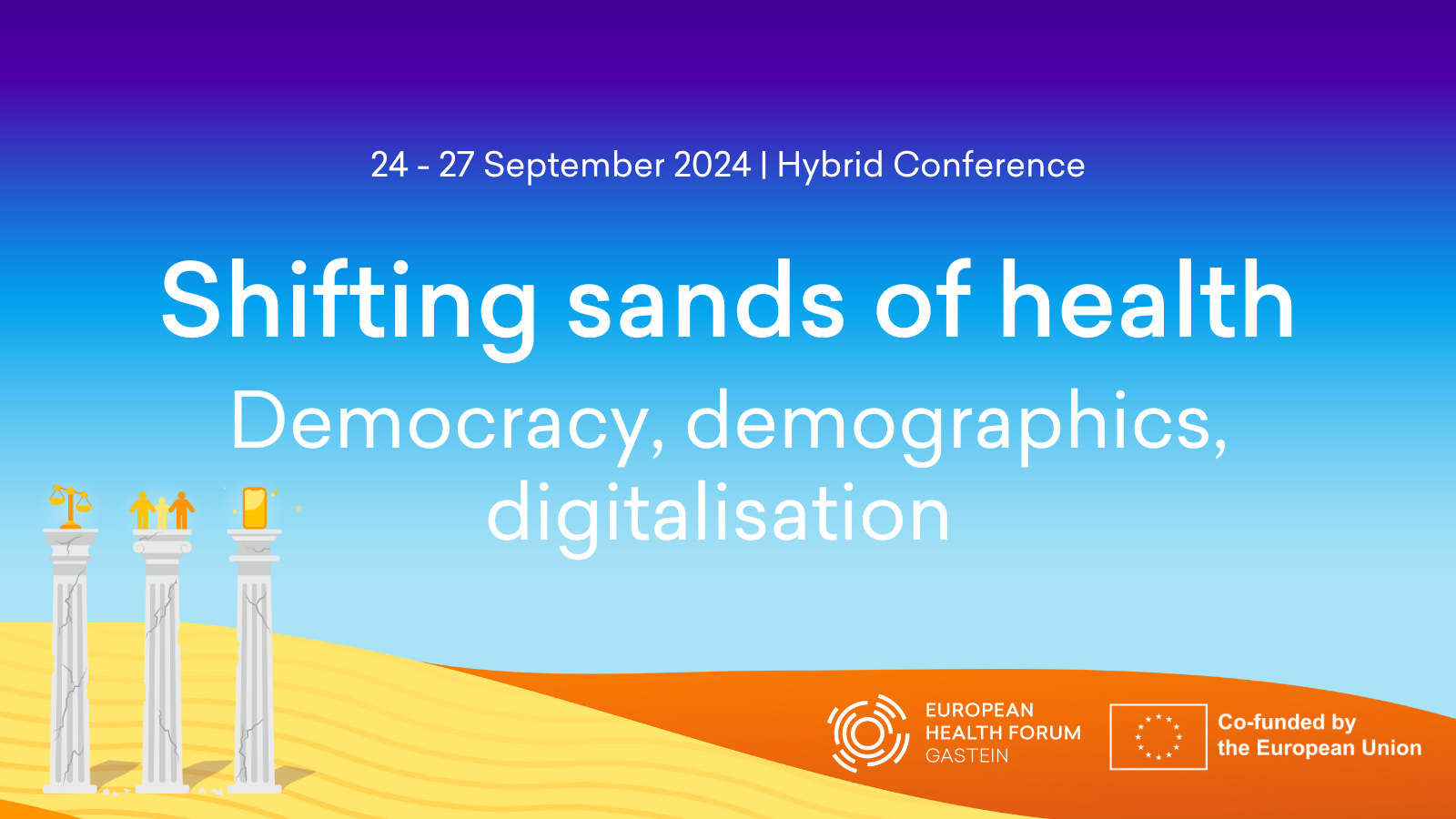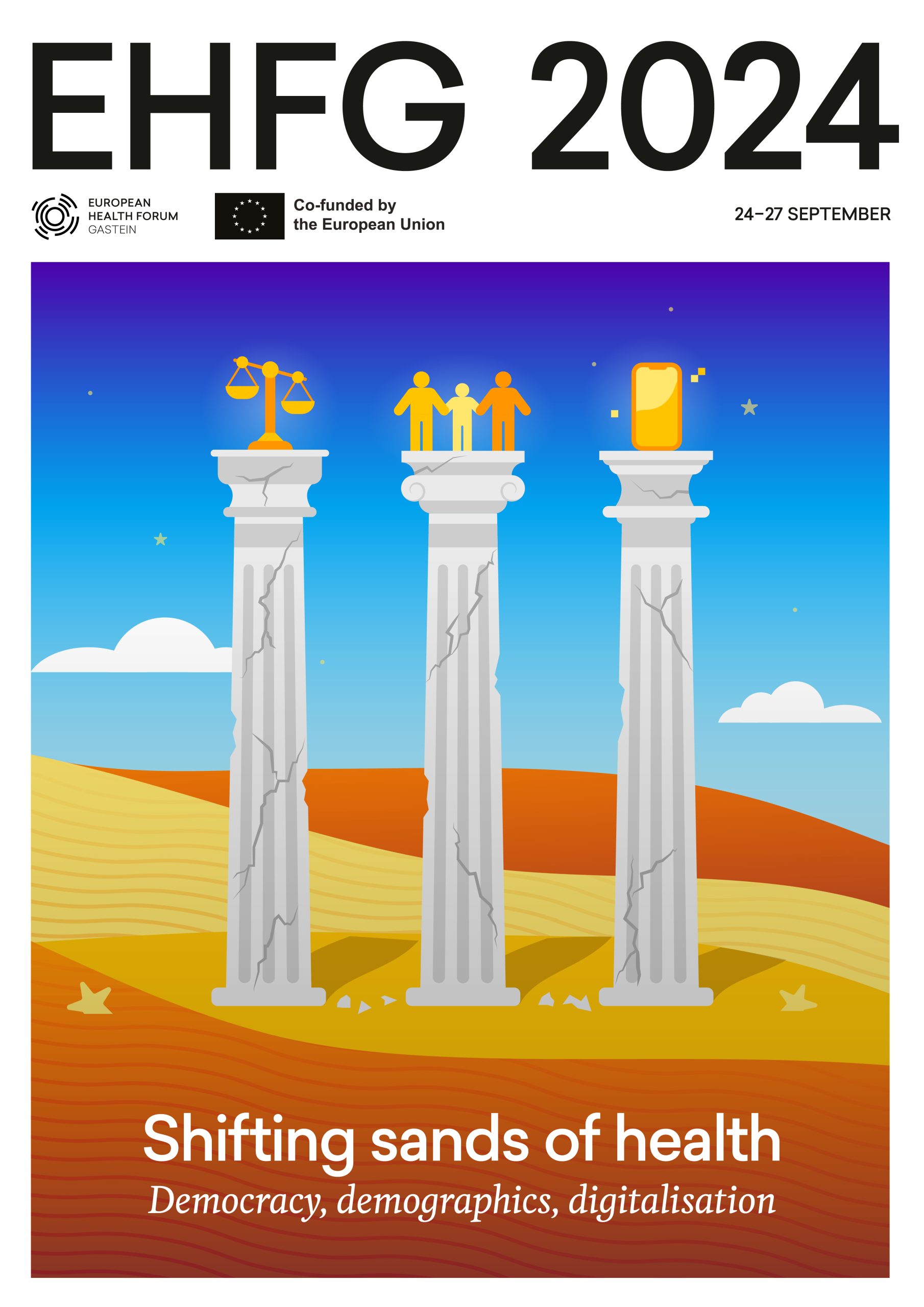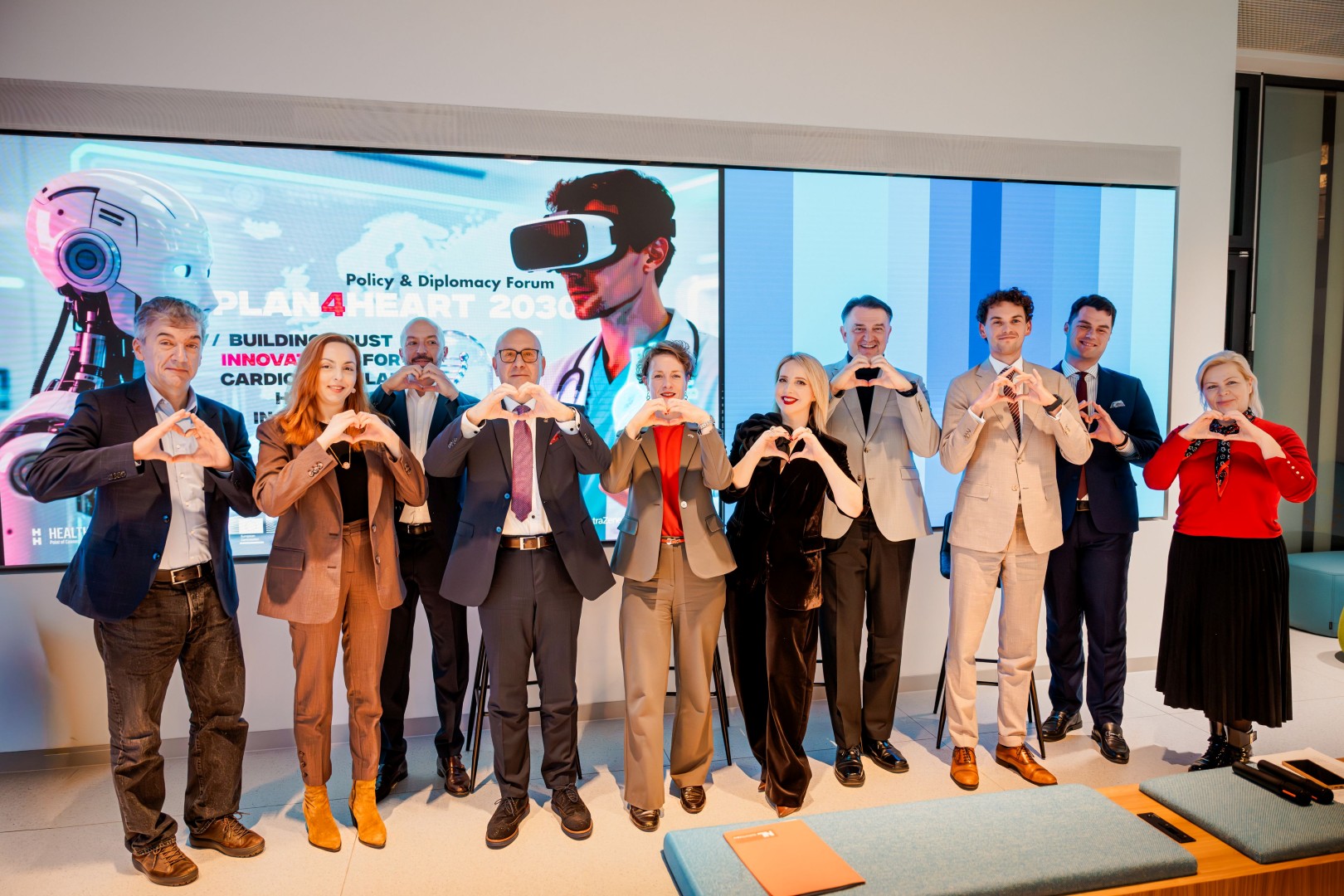European Health Forum Gastein (EHFG) 2024: Shifting sands of health; “3D” interplay of democracy, demographics, and digitalisation!
hifting sands of health – democracy, demographics, digitalisation The health landscape in Europe is ever-changing, driven by numerous factors, trends, and forces. Inter-linked transformations, most prominently the demographic shift and the rapid developments in the world of digitalisation, have wide-ranging implications for the health of our societies and healthcare systems. Furthermore, the erosion of self-governing democracies by populist and autocratic political movements remains underestimated in health policy debates: democracy isn´t so much dying in the darkness as being extinguished in the cold light of day. The health community faces a stark choice: mobilise in this new landscape or collude with the health consequences.

2024 marks the biggest election year so far in human history, with over 50% of the global population called to the polls. Yet data shows that democracy is under threat like never before, and that autocratic ideas are on the rise, most worryingly among a disaffected younger population. There is a crisis of trust and a creeping disillusionment with the status quo amongst voters, with democracy seen as failing to deliver on its promises of addressing key issues from the climate crisis, to conflict, migration, and secure employment.

When it comes to health and healthcare systems, democratic institutions seem to be sleepwalking rather than offering innovative solutions to the critical challenges of overstretched systems and health workforce attrition. Europe is entering an era of profound demographic change. New highs in life expectancy coupled with changing fertility patterns will create a rapid expansion in the number and share of older people as a percentage of the population.
Younger people will be particularly impacted: they may be compelled to remain employed longer as the ages of eligibility for state pensions rise, and to take specific career paths where there are shortages of human labour – especially in healthcare systems.

Migration will bring opportunities and challenges (not least societal and political), including increases in the workforce in some places, and brain drain in others.
We will be living longer but not necessarily healthier lives, and much will depend on our greater adoption of healthy behaviours and the extent to which medical advances, Artificial Intelligence (AI) and other digital technologies can support us. The digital transition brings both risks and opportunities. Technological developments including AI will create opportunities for increased accuracy, organisation, and efficiency of healthcare services, with predictive technology supporting a renewed focus on prevention. However, policymakers must act accordingly to prevent widening health inequalities by avoiding a digital divide, focus urgently on the regulation of these new technologies, and heed the warnings of experts who have described their uncontrolled expansion as an existential threat.

As these transformations shape the sustainability of the health landscape, it is crucial to adapt and harness the opportunities they offer while addressing challenges such as privacy and equity. If they are not managed well, the ensuing differences are likely to magnify existing economic, social, and territorial cohesion and inequities, and further exacerbate political divides.
Join EHFG 2024 in Gastein and online in September 2024 to find solutions for the complex “3D” interplay of democracy, demographics, and digitalisation – let´s be optimistic and not bury our heads in the shifting sands!




